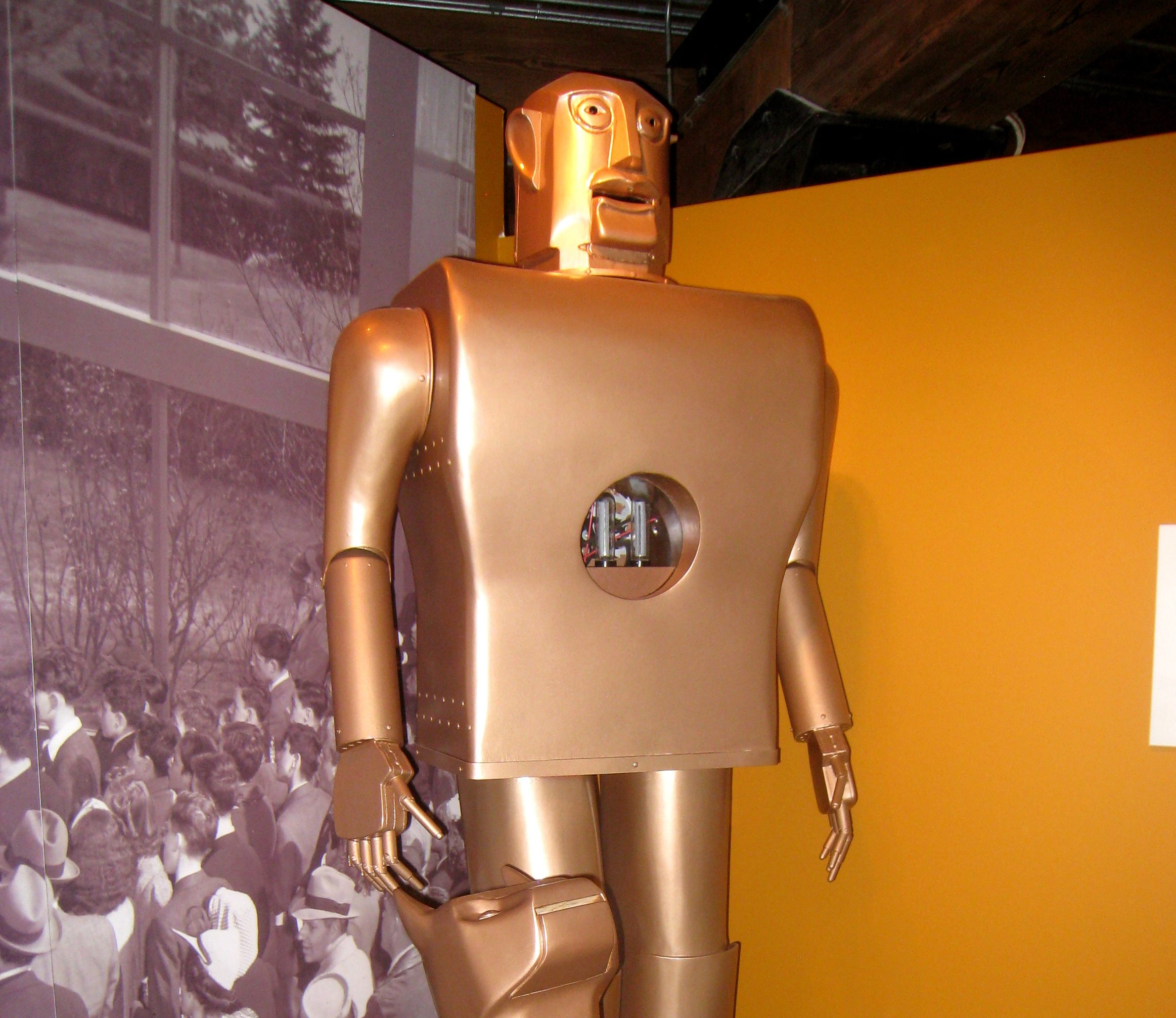Robot Workers Could Become ‘Electronic Persons’ in Europe
The future is here.

(Photo: Public Domain)
Robots are slowly taking over the world, and doing a variety of tasks, from manufacturing to greeting you in unsettlingly lifelike ways.
So it should probably come as no surprise that some lawmakers in Europe want to declare them “electronic persons”—an ominous sounding if mostly harmless distinction. That’s because what lawmakers really want, according to Reuters, is more tax revenue to replace what might have come in from human workers, in addition to a clearer legal framework for the machines.
The plan, a draft being considered by the European parliament, wants countries there to examine the idea that ”the most sophisticated autonomous robots could be established as having the status of electronic persons with specific rights and obligations,” Reuters reports.
What that actually means is unclear. How sophisticated do robots have to be to be counted as persons? Must they be sentient?
According to Reuters, the European plan is also an attempt to anticipate a future legal framework for robots. If an autonomous robot goes rogue, malfunctions, and hurts someone, who’s responsible? The courts will figure it out, but likely not before piling up huge legal fees.
Some in the robotics community, though, said that proposals like the European parliament’s could end up harming innovation in the robotics community, since, in the history of robots, we’re still pretty close to the beginning.
This is “something that could happen in 50 years but not in 10 years,” Patrick Schwarzkopf, a director at the German Engineering Association, told Reuters.

















Follow us on Twitter to get the latest on the world's hidden wonders.
Like us on Facebook to get the latest on the world's hidden wonders.
Follow us on Twitter Like us on Facebook